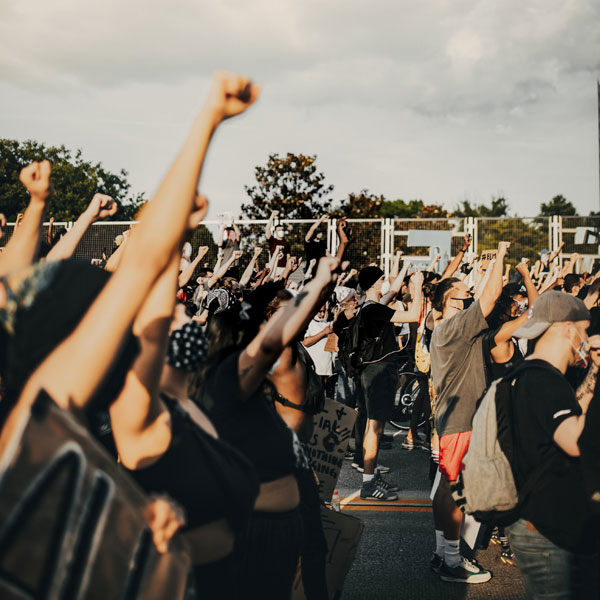Pro-Palestinian protests disrupt universities across the United States

[Image of a protest. Credit to Unsplash]
Pro-Palestinian protests have swept through major universities in the United States, disrupting campuses and becoming centers for student activism against Israel’s actions in Gaza.
More than 40 public and private universities in at least 22 US states and Washington D.C. are protesting against Israel’s war in Gaza, where Israel’s military has killed over 34,200 Palestinians as of April 24, 2024.
These universities include: Yale, New York University, Columbia University, Harvard, UCLA, UT-Austin, Emory University, University of Southern California, and many more.
Columbia University, one of the most prestigious universities in the US, has emerged as a major hub for student activism against Israel.
It was the first university to form a major pro-Palestinian encampment on campus, and among the first to be accused of antisemitism.
On April 19, more than 100 protestors from Columbia University were arrested on campus for trespassing, with many suspended and now potentially facing criminal charges after the university’s president asked the police to clear the protesting site.
The university stated that camping overnight on school property was against code and the students were given multiple warnings before police got involved.
This movement, which began with only 70 students, spread rapidly.
The mass arrests emboldened protesters, with student activists banding once again on campus, organizing protests through social media.
Posts on an Instagram page for protest organizers urged people to protect the encampment.
Minouche Shafik, the president of Columbia University, stated that conversations with student organizers to dismantle the encampment had failed.
Meanwhile, the University of Southern California (USC) reported that USC property was vandalized by members of a group that has continued to illegally camp on campus as well as disrupt operations and harass students and others.
The university linked this behavior with the pro-Palestinian protesters.
The administrators from USC stated that while they fully support freedom of expression, acts of vandalism and harassment are unacceptable and will not be tolerated.
Furthermore, the university canceled a commencement speech by the school’s pro-Palestinian valedictorian, recognizing safety concerns.
At Northeastern University, police in riot gear intervened to clear an encampment, resulting in the arrest of 102 protesters who were given a 15-minute dispersal notice.
The university condemned antisemitic slurs reportedly used during the demonstration, attributing them to "professional organizers" not affiliated with the institution.
Student groups disputed these claims, asserting that counterprotesters were responsible for the hate speech.
Around 100 people were detained and students with a valid ID were released.
These students from various universities across the United States are uniting in protest, advocating for a common goal against the ongoing conflict in Gaza.
They are calling for their universities to financially divest from corporations that profit from Israel’s war in Gaza.
Student activists stated that companies doing business in or with Israel are involved in illegal activities in the ongoing war, and so are the colleges that invest in those companies.
Pro-Palestinian campus groups have called for US universities to endorse the Boycott, Divestment, Sanctions (BDS) movement against Israel, although none have committed so far.
While divestment may not directly influence the Gaza conflict, activists argue that it raises awareness regarding profiteering from the war.
Despite recent protests, no significant progress has been made, as highlighted by Columbia University’s reiteration of its decision not to divest from Israel.
Regardless of the challenges, the students remain resolute in their pursuit for change in the ongoing conflict.

- Chaemin Lee / Grade 10
- Saint Paul Academy Daechi

![THE HERALD STUDENT REPORTERS [US]](/assets/images/logo_student_us.png)
![THE HERALD STUDENT REPORTERS [Canada]](/assets/images/logo_student_ca.png)
